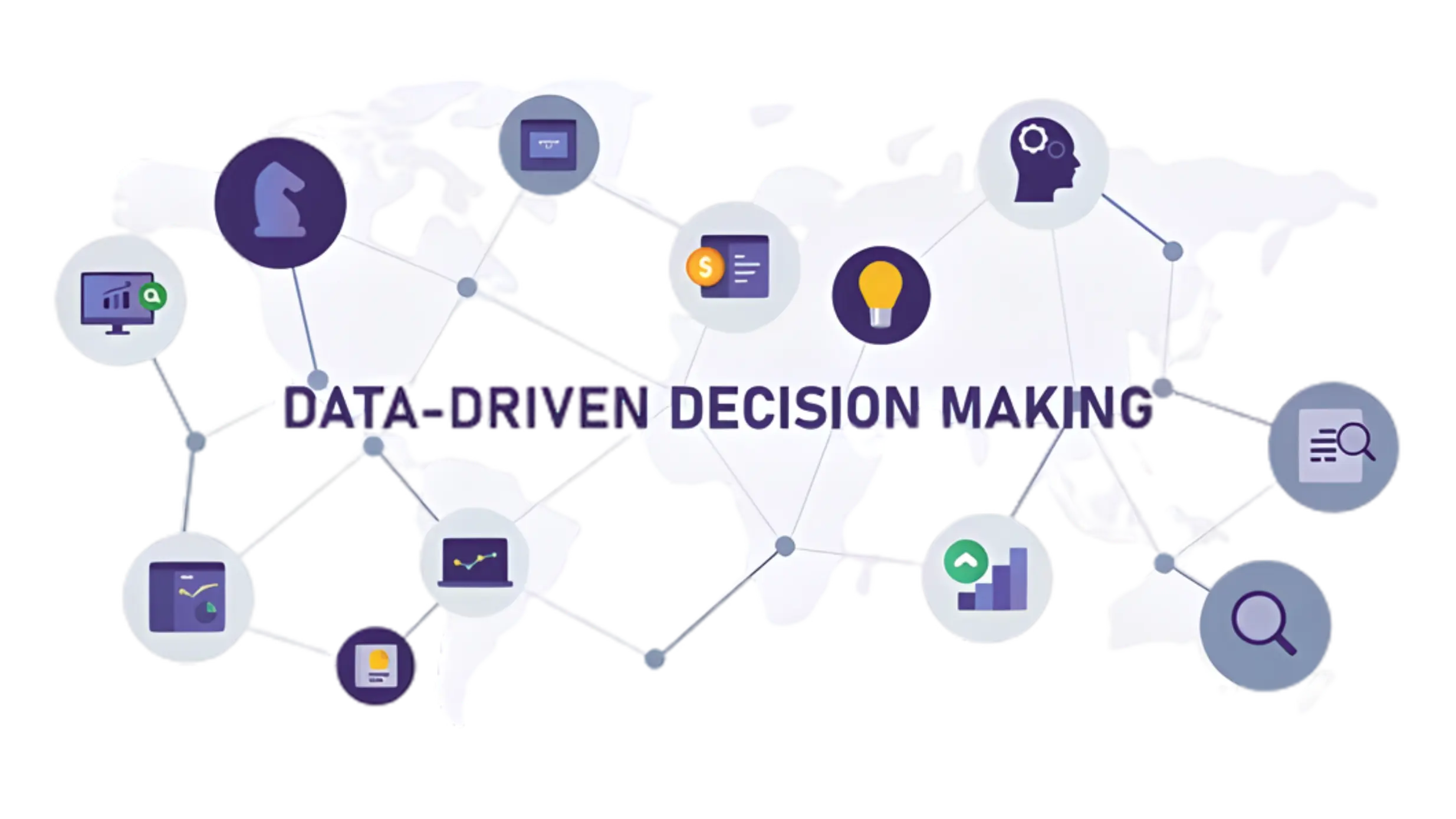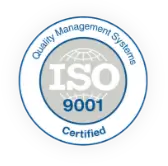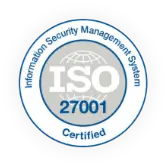Top 5 Reasons CRM for Financial Advisors Is Key to Faster Business Growth
Learn why CRM for financial advisors is key to faster business growth. Improve client satisfaction, save time, stay compliant, and make smarter data-driven decisions.
Contact UsFinancial advisors deal with complex responsibilities every day, managing client information, staying compliant with regulations, coordinating internal workflows, and keeping portfolios updated. As these demands grow, relying on spreadsheets or disconnected systems leads to errors, inefficiency, and difficulty scaling the business.
A dedicated CRM for financial advisors addresses these challenges by consolidating all client and operational data into a single, organized platform. It streamlines communication, automates routine tasks, and connects seamlessly with essential investment advisors tools and CRM wealth management software. This unified approach reduces administrative burdens and creates a more efficient, consistent, and growth-ready advisory practice.
The 2025 WealthTech Adoption Report reveals that advisory firms using integrated CRM platforms achieve 43% higher client satisfaction scores than those relying on disparate systems.
This article explores the five key reasons why a modern CRM is now essential for financial advisors who want to improve service quality, strengthen compliance, and build a scalable firm.
5 Reasons CRM for Financial Advisors
Strengthen Client Relationships Through Personalization
Strong relationships are the backbone of financial advisory success. Clients expect personalized communication and proactive guidance, not one-size-fits-all service.

Why Personalization Matters
Personalized service has become increasingly important in investment advisory. The 2025 Global Financial Advice Survey shows that 78% of clients now expect their advisor to remember personal details and life events without being reminded. Research from the CFA Institute in 2025 also found that personalized advice leads to 45% higher client retention during periods of market volatility.
How a CRM Supports Stronger Relationships
Advanced CRM systems now incorporate AI-driven insights that automatically flag client life events and opportunities for engagement. A 2025 McKinsey Wealth Management study found that advisors using next-generation CRM tools conducted 52% more meaningful client interactions while reducing administrative time by 27%.
A CRM collects and organizes every important client detail in one place, including:
- Communication history
- Personal milestones
- Financial goals and risk tolerance
- Preferred communication channels
With this insight, advisors can deliver timely, relevant, and tailored experiences.
Real-life Example
Northwest Wealth Managers implemented a next-generation CRM system in early 2025 and saw their client retention improve by 31% within six months. The firm's AUM grew by $150 million during the same period, directly attributed to improved client engagement through their new financial advisor software.
Enhance every client interaction with personalized insights.
Let’s TalkImprove Operational Efficiency with Automation
The 2025 Financial Advisory Efficiency Report reveals that advisors using AI-enhanced CRM systems reduce time spent on compliance documentation by 48% compared to traditional methods. Additionally, Deloitte's 2026 Wealth Management Outlook indicates that integrated CRM platforms save the average advisor 6.2 hours per week on manual data reconciliation. Advisors often spend hours on tasks that don’t directly generate revenue.

How Automation Helps
Industry data shows automation can reduce administrative workload by up to 40%. A CRM handles tasks such as:
- Meeting scheduling and reminders
- Routine follow-up emails
- Report distribution
- New client onboarding workflows
This frees advisors to focus on meaningful client interactions and business development.
Streamlined Communication
A CRM keeps every client interaction, emails, calls, messages, and meeting notes, centrally organized, with seamless integrations for your email, calendar, and communication tools so no detail is missed and your team stays aligned. Modern CRM platforms also provide unified communication capabilities such as secure messaging, video conferencing, and document sharing, giving advisors a fully connected workspace.
According to 2025 research by Celent, firms using these integrated communication hubs experience 57% faster response times and a 39% improvement in client communication satisfaction, demonstrating how consolidated communication directly enhances the client experience.
Automate routine tasks and free up your week.
Start NowGain Complete Financial Data Clarity Through Integrations
Accurate, up-to-date data is essential for delivering quality advice. When systems don’t talk to each other, errors and inefficiencies multiply.

Integrating Financial Planning CRM Software
The 2025 Investment Management Technology Survey shows that firms using fully integrated financial planning CRM software experience 51% fewer data errors in client reporting. Furthermore, Aite-Novarica's 2025 research indicates that advisors with seamless data integration complete client reviews 42% faster than those using disconnected systems.
Connecting planning tools to your CRM provides:
- Real-time portfolio values
- Automatic syncing of client data
- Faster prep for client meetings
- Fewer manual entry errors
Advisors can view financial summaries alongside goals and previous recommendations without switching systems.
Integrating Investment Management Software
When investment tools link directly to your CRM, advisors gain:
- Immediate insight into portfolio performance
- Alignment with documented risk tolerance
- Early detection of opportunities or imbalances
This unified data view helps advisors deliver confident, informed guidance.
Morningstar's 2025 Advisor Technology Study reveals that CRM systems integrated with investment management platforms help advisors identify rebalancing opportunities 3.2 weeks earlier on average. This proactive approach leads to 28% better portfolio performance during market transitions, according to the same study.
Strengthen Compliance and Reduce Regulatory Risks
Compliance is non-negotiable in financial services. Manual tracking exposes the firm to errors and penalties.

CRM Compliance Capabilities
The 2025 Global Financial Compliance Report indicates that regulatory requirements for financial advisors have increased by 34% since 2023. However, firms using advanced CRM systems with built-in compliance features report 67% fewer compliance incidents and reduce audit preparation time by 55%.
A CRM built for financial advisors provides:
- Audit trails that log every change
- Encrypted document storage for disclosures and agreements
- Automated retention rules for SEC and FINRA requirements
- Email and message archiving for audits
- Role-based access control to protect sensitive data
These tools reduce risk and make compliance easier to manage.
Adapting to Regulatory Changes
CRMs also support ongoing compliance needs through:
- Regulatory alerts
- Training documentation
- Version control for firm documents
FINRA's 2025 Technology Adoption Survey shows that advisory firms using AI-powered compliance monitoring within their CRM systems detect potential violations 45 days earlier on average. The same research indicates that these firms experience 71% lower compliance-related costs compared to those using manual monitoring processes.
Overcoming Adoption Challenges
Common concerns, data migration, setup time, and staff training, can be handled smoothly through a structured implementation. Tech Implement guides firms through every step to ensure a seamless transition.
While implementation challenges exist, the 2025 Wealth Management Technology ROI Report demonstrates that properly implemented CRM systems deliver an average ROI of 243% over three years, with most firms recouping their investment within 14 months.
Discover how top firms achieve 243% ROI with CRM.
Get InsightsMake Strategic Decisions with Analytics and Reporting
Growth requires clarity. A CRM transforms raw client and operational data into insights that help advisors make confident decisions.

The 2025 State of Financial Analytics Report reveals that advisory firms using advanced CRM analytics grow their AUM 38% faster than industry averages. Additionally, BCG's 2025 Wealth Management Research indicates that data-driven firms achieve 52% higher profit margins through better resource allocation and client segmentation.
Key Insights Available
With CRM dashboards, firms can track:
- AUM growth
- Pipeline activity and conversion rates
- Client lifetime value
- Revenue concentration
- Advisor productivity
These insights highlight opportunities, risks, and performance trends.
Improving Client Service with Analytics
One firm learned through its CRM that high-value clients weren’t receiving enough proactive reviews. After implementing quarterly check-ins, the firm saw:
- A 10% increase in wallet share
- Higher satisfaction ratings
Analytics help firms serve clients more intentionally and profitably.
Coastal Financial Partners leveraged their CRM's predictive analytics in 2025 to identify clients at risk of attrition. By implementing proactive engagement strategies, they reduced client turnover by 44% and increased cross-selling success rates by 63% within one year, according to their internal 2025 performance metrics.
Turn firm data into growth insights with advanced analytics.
View DemoConclusion
Modern financial advisory work depends on accurate data, consistent communication, and the ability to act quickly on client needs. A CRM for financial advisors brings all of these elements together in a single system, turning scattered information and manual processes into an organized, predictable workflow. By connecting planning tools, tracking every interaction, and providing real-time insight into both clients and operations, a CRM creates the structure advisors need to operate with confidence.
Firms that rely on outdated, disconnected tools limit their capacity to grow. Meanwhile, those who adopt a purpose-built CRM gain the structure and visibility needed to deliver higher-quality service, operate more efficiently, and scale with confidence. In today’s advisory landscape, an integrated CRM is not optional; it is the framework that supports stronger client relationships, better decision-making, and a more competitive, future-ready practice.
FAQs
A CRM creates standardized workflows for reviews, onboarding, and follow-ups so every client receives the same level of care, regardless of advisor workload or team size. This ensures that important milestones, disclosures, and check-ins never get overlooked.
If your team spends too much time tracking client information manually, struggles to prepare for reviews, or risks missing key client updates, you’ve likely outgrown legacy tools. A CRM solves these issues by centralizing information and automating the administrative tasks that slow growth.
Advisors typically see faster onboarding, more proactive client communication, improved compliance accuracy, and clearer visibility into firm performance. Many firms experience measurable improvements in client satisfaction and operational efficiency within the first few months.
A CRM benefits firms of all sizes. Smaller firms gain structure and time-saving automation, while mid-sized and growing firms use the CRM to scale without overwhelming staff or losing service quality. The earlier a firm adopts a CRM, the easier growth becomes.
CRMs automatically track interactions, store required documents, log changes, and apply consistent compliance rules across every client workflow. Advisors spend less time documenting and more time advising, while still keeping audit-ready records.
Integrations ensure that your CRM reflects real-time client data, portfolio changes, risk scores, goals, and planning updates. This eliminates manual entry, reduces errors, and provides advisors with a comprehensive client picture without requiring them to switch between multiple systems.
Look for a platform designed specifically for financial services that supports automation, compliance, integrations, and firm-wide visibility. Prioritize ease of use, onboarding support, and the ability to customize workflows to match your firm's existing operations.


